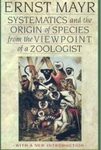![The Ecological Thought The Ecological Thought]()
Click to have a closer look
About this book
Contents
Customer reviews
Biography
Related titles
About this book
In this passionate, lucid, and surprising book, Timothy Morton argues that all forms of life are connected in a vast, entangling mesh. This interconnectedness penetrates all dimensions of life. No being, construct, or object can exist independently from the ecological entanglement, Morton contends, nor does "Nature" exist as an entity separate from the uglier or more synthetic elements of life. Realizing this interconnectedness is what Morton calls the ecological thought.
In three concise chapters, Morton investigates the profound philosophical, political, and aesthetic implications of the fact that all life forms are interconnected. As a work of environmental philosophy and theory, The Ecological Thought explores an emerging awareness of ecological reality in an age of global warming. Using Darwin and contemporary discoveries in life sciences as root texts, Morton describes a mesh of deeply interconnected life forms – intimate, strange, and lacking fixed identity.
A "prequel" to his Ecology without Nature: Rethinking Environmental Aesthetics (2007), The Ecological Thought is an engaged and accessible work that will challenge the thinking of readers in disciplines ranging from critical theory to Romanticism to cultural geography.
Contents
Acknowledgments
Introduction: Critical Thinking
1. Thinking Big
2. Dark Thoughts
3. Forward Thinking
Notes
Index
Customer Reviews
Biography
Timothy Morton is Professor of Literature and Environment, University of California, Davis. He is author of The Poetics of Spice and Shelley and the Revolution in Taste, and editor of The Cambridge Companion to Shelley and Cultures of Taste/Theories of Appetite.
By: Timothy Morton(Author)
163 pages, no illustrations
"Morton's The Ecological Thought rejects the romantic concept of nature as a passive foil to human action. The natural world, as it turns out, is not something outside of us; or, put another way: there is no difference between humans and our environment [...] He asks us to engage in 'radical openness' as a way of practicing 'radical coexistence,' a state of being that we live even when we do not think much about it [...] Morton's book allows us to see our stirrings of sympathy for nonhuman beings such as strawberries as the beginning of a recognition that we have all – people and plants alike – lost long ago our presumed roots in an imagined natural world."
– Natania Meeker and Antónia Szabari, The Los Angeles Review of Books
"Timothy Morton has a unique take on ecology that challenges much of the alternative consciousness that floats around on the periphery of environmental circles. He offers a profound take on human possibilities. To Morton, human society and Nature are not two distinct things but rather two different angles on the same thing."
– Tikkun
"By suggesting imaginative ways to resolve other crises, could humanities scholars stave off the crisis engulfing their own subjects? Morton proposes a future in which the venerable ideas of 'nature' and 'environment' are so much detritus, useless for addressing a looming ecological catastrophe. His book exemplifies the 'serious' humanities scholarship he makes a plea for. My head's still spinning."
– Noel Castree, Times Higher Education
"Picking up where his most obvious predecessors, Gregory Bateson and Felix Guattari, left off, Morton understands mental ecology as the ground zero of ecological thinking, as that which must be redressed before anything else and above all. Morton goes beyond both his forebears, however, in repairing the rift between science and the humanities, which the Enlightenment opened up and against which Romanticism reacted. Perhaps most pleasantly surprising, given its erudition, is that in its stylistic elegance The Ecological Thought is as satisfying to read as it is necessary to ponder."
– Vince Carducci, College for Creative Studies
"Morton writes from inside the ecological thought, not as its cheerleader or architect but as a latter-day Romantic. The great strength of this book is its genre inventiveness, and its main contribution is its performance of a thinking keyed to our time and place, a thinking with clear and immediate ethical implications. The Ecological Thought is crucial right now."
– Marjorie Levinson, University of Michigan



































